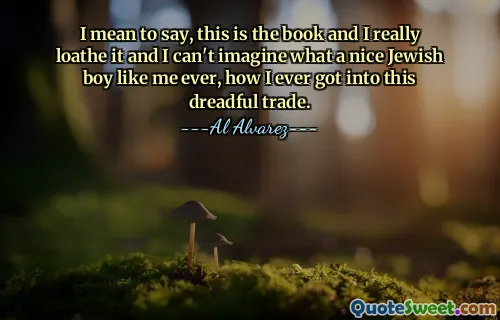I like his optimism,' I said. 'I like the way when he and some other rabbis saw a jackal in the ruins of Jerusalem, and the others began to cry, he laughed and said that just as the prophecy of the destruction of the temple was fulfilled, so the prophecy of the rebuilding would also be fulfilled. I like that.
In "Davita's Harp" by Chaim Potok, the narrator expresses admiration for an optimistic rabbi who finds hope even in dire circumstances. When a group of rabbis encounters a jackal in the ruins of Jerusalem, their sorrow contrasts sharply with the rabbi's laughter, as he interprets this moment as a sign that the prophecies regarding both destruction and eventual rebuilding hold true. His perspective highlights a deep faith in renewal and the cyclical nature of fate. This optimism resonates with the narrator, who appreciates the rabbi's ability to see beyond despair. The juxtaposition of mourning and hope serves to inspire readers, suggesting that even in moments of loss, one can find reason to believe in a brighter future. The rabbi's response encapsulates the resilience of faith and serves as a reminder of the possibility of restoration amidst ruin.
I like his optimism,' I said. 'I like the way when he and some other rabbis saw a jackal in the ruins of Jerusalem, and the others began to cry, he laughed and said that just as the prophecy of the destruction of the temple was fulfilled, so the prophecy of the rebuilding would also be fulfilled. I like that.

